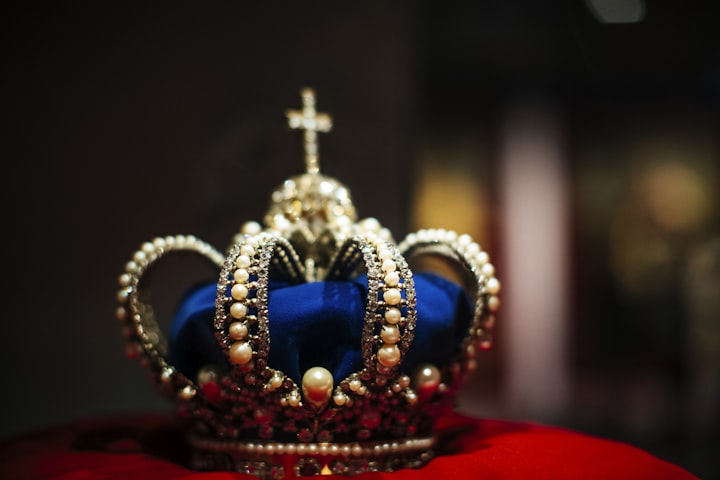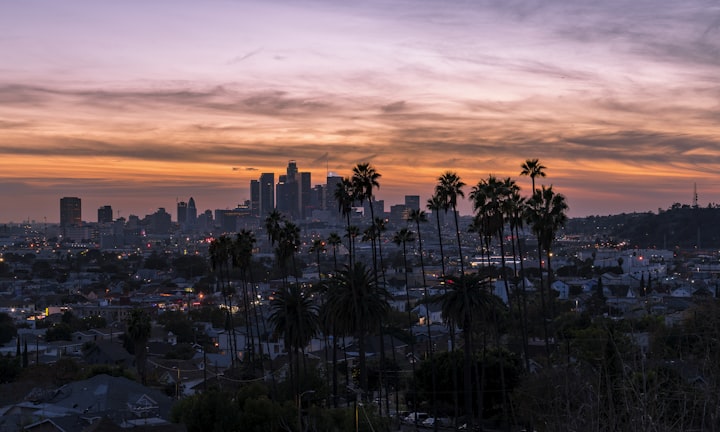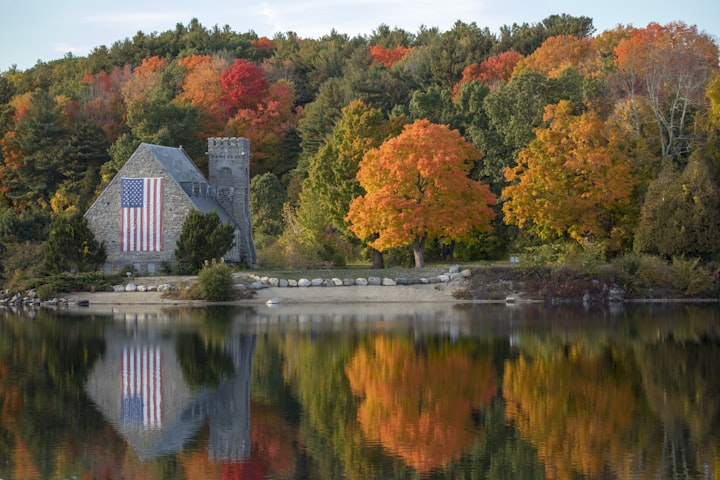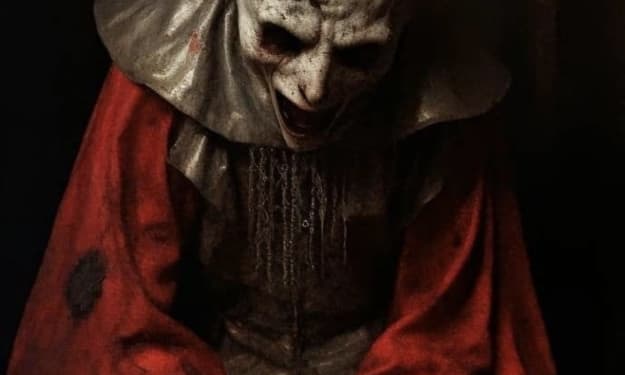Powers of the Modern Monarchies of Europe
The despots we tolerate

The Monarchies of Europe
Western Civilization and culture is connected in its belief of liberal democracy. Human rights and democratic processes are central tenants of many European institutions. European history can be characterized by the rule of divine right monarchs; yet, in present day Europe ten democratic nations still have monarchs claiming divine rule. John Locke on the founding fathers of liberal democracy said in his Two Treatises on Civil Government that the Divine Right of Kings was an illiberal idea. Only 19% of Swedish people are religious making it one of the least religious nations in the world ("Religion In Sweden"), yet they still retain a King anointed by the church. While the monarchies present today are constrained by constitutions they are still unelected leaders holding large amounts of legal power.
As of 2018 in Europe there remains ten ruling monarchs, Liechtenstein’s Ruling Prince Hans–Adam II, Monaco’s Prince Albert II, Luxembourg’s Grand Duke Henri, Phiippe King of the Belgians, Norway’s King Harald V, Sweden’s King Carl XVI Gustaf, Denmark’s Queen Margrethe II, The Netherland’s King Willem-Alexander, Spain’s King Filipe, the United Kingdom’s Queen Elizabeth II, and lastly Pope Francis who is ruler of Vatican City until death despite his being elected by the College of Cardinals. (“Beyond the Windsors: Europe’s Other Royal Families”)
This paper will explore how these monarchies managed to survive into the 21st Century, what their function is now, and what are the costs to democracy in keeping them. This paper will focus on three monarchies, the first being the United Kingdom. The reason for this being that there is no Monarch in Europe whose dominion is larger or is as famous as the Queen of England. The next will be that of the Spanish King, whose role in the development of Spanish democracy, and language connection with many former Spanish colonies makes him one of the most influential in Europe, despite his family being rocked hard by numerous scandals. Lastly we will examine Pope Francis whose ecclesiastic influence reaches all over the world, and who is the most ambitious monarch in Europe when it comes to attempting to make real political change.
Elizabeth II Regina is Queen of England, Scotland, Wales, North Ireland, Australia, Canada, New Zealand, Antigua and Barbuda, The Bahamas, Barbados, Belize, Canada, Grenada, Papua New Guinea, Saint Kitts and Nevis, Saint Lucia, Saint Vincent and the Grenadines, The Solomon Islands, and Tuvalu. A powerful reach stemming from Britain’s Colonial past, which has like the power of the monarchy waned slowly with time. It was the Queen Mother, Queen Elizabeth who died as recently as 2002, who last held the title Empress of India. (Tribune) Despite the shrinkage in 2017 Forbes ranked The Queen as the 26th most powerful woman in the world. ("Profile On Queen Elizabeth") Her likeness is used on bank notes in 16 different countries. ("Living People On Currency") She has many practical powers, and most governing in these regions is done in her name. For examples she is nominally commander in chief of the military, she can dissolve parliament for elections, and appoint prime ministers. All on the advice of her ministers of course. (Price) A careful balancing act is played to keep the monarchy coexisting with democracy, one that has been developed over hundreds of years. (“Retaining The Royals: Why Has The British Monarchy Survived – And Thrived?)
The beginning of English monarchies as they are colloquially understood begins with the Norman Invasion in 1066. Leading to what would eventually become the Angevin Empire with holdings in Ireland, Wales, part of Scotland, all of England, the French region of Anjou, and the Duchy of Normandy. ("Angevin Empire | Historical Empire, Europe") However in the 13th century King John lost much of France in wars with the French King, including his ancestral home, Normandy. The vast amounts of land lost on the European continent were never recovered, from then on the bulk of English rule would happen across the channel, in the 16th century, Calais, the lasts English stronghold in France would be lost for good. King John’s losses greatly upset the English barons, who had lost great amounts of money in the French wars, and were struggling to negotiate keeping their land in France with the French crown decided to revolt against King John. Forcing him to sign the Magna Carta in 1215, proclaiming that kings must obey the law, and granting certain liberties to his English subjects. ("Magna Carta | History, Summary, & Importance") This would represent the first time that the power of the English crown had been limited by its subjects.
Later the English parliament would revolt against the Stuart kings of England. Parliament actually had Charles I tried and executed for treason, resulting in the dictatorship of Oliver Cromwell. On Cromwell’s death however the Stuart line was restored bringing the reign of Charles II. Who rules without incident, however his son James II is overthrown by parliament for being too Catholic. Parliament preferred his Daughter Mary to him, and invited her to rule with her husband William of Orange. At parliaments behest they invaded with William’s Dutch fleet in 1688, in what was called the Glorious revolution. In 1689 the English Bill of Rights was passed and approved by Mary and William. It gave parliament certain rights, like freedom of speech, so it could better counterbalance the crown. In 1701 at the death of Stuart Queen Anne, parliament passed the act of settlement. Preventing another Catholic from taking the English throne, and passing over several of Anne’s relatives to in the Stuart line. Brining on George I and starting the Hanoverian line, since this development no monarchs have vetoed any law brought forth by parliament. Still the right of the crown to not allow the consideration of bills in parliament if those bills pertain to the crown has been used several times by Queen Elizabeth II on the advice of her ministers.
So what does the Queen do for her subjects now? She is mostly a tourist attraction, tourism is the second largest industry in the UK, and studies show that the economic benefits of the queen outweigh her cost to tax payers. (Kahzan) The Royals also preform many ceremonial government duties in the name of nationalism, and even have some diplomatic advantages. The idea of being photographed with the Queen is often more appealing to foreign leaders than is photos with the Prime Minister. So she remains an important part of English soft power.
The Spanish King’s political origin story starts much sooner than that of the English crown. It took its current form after King Juan Carlos was made the successor to Spanish Dictator Francisco Franco. The restoration of the monarchy after Franco’s death left the Spanish Crown lots of power, however King Juan Carlos oversaw the transition to a parliamentary democracy. Making political parties legal, and ushering in the first post Franco elections in 1977. ("Spain’S Post-Franco Emergence From Dictatorship To Democracy - Association For Diplomatic Studies And Training")
Much of his reign was spent adored by his people as he became a small part in the running of Spain, a ceremonial monarch constrained by the constitution. King Juan Carlos was immensely popular for bringing democracy to Spain. Toward the end of his reign his popularity dipped very seriously. Spain was in economic crisis and it was discovered that he had been spending vast amounts of money to hunt elephants. It also came out that he had an affair with a rich foreigner, and that his son-in-law had been embezzling money from a nonprofit organization. Much of King Juan Carlos’ good will evaporated. (Colacello) His abdication and the succession of the current youngest European Monarch King Filipe has drastically improved public opinion of the crown. In fact after the Catalonia crisis King Pilipe’s approval ratings have been in the low 70s, a high not seen for years in Spain. Much of it has been due to the kings prevailing pleas for national unity. (Aanmoen)
Pope Francis’ political power is much more all encompassing. One he is the absolute and only authority in the running of Vatican City. This is very undemocratic but the area in Vatican City is very small. The Popes authority over the Vatican comes from a history of the Pope being monarch of medieval Papal States scattered throughout Europe. Currently Vatican city is the only remaining papal state and functions to give the pontiff freedom to lead the faithful without being influenced by governments.
The Pope, unlike most European monarchs does not take a backseat in politics. The pope has made numerous political gestures during his tenure. He has published writings about climate change and mans duty to combat the issue. The Pope has also softened church stances of abortions, giving priests the right to forgive the sin of abortion. He has also told the church to shift its focus away from anti-homosexuality campaigns. The pope has even earned himself a reputation for taking jabs at President Trump. During the campaign Pope Francis implied that building walls between nations was not a Christian thing to do. He also gifted President Trump a book on climate change, and did not smile when photographed with Trump. A glaring contrast to images of Trump with President Obama. (“8 Ways Pope Francis is changing the Catholic Church”)
Though Pope Francis is the most political of all monarchs, he still doesn’t seem to negatively affect democracy that much, as no one is under any sort of legal obligation to listen to him.
Still the presence of most monarchies in Europe is still directly in contrast with democracy. There role as symbols, and ceremonial leaders doesn’t justify the fact that they are unelected leaders, who only got to their position by inheritance, or in the case of the pope a closed door elites only decision making process.
The notion of reform is common and likely more plausible than abolition. To make monarchies more compatible with democracies more nations should adopt the Belgian model. The King of the Belgians is the protector of the people’s sovereignty, which is why he isn’t style the Belgian King. He doesn’t rule the people, the people rule themselves, and his role is to ensure that happens. Contrasted to Britain where all political power emanates from the crown, not the people. (“Should Britain Abolish the Monarchy”) It would also limit the idea that the monarchy is a check against the growth of a tyrannical government, an idea easily eroded by the story of Edward VIII, who was very close to the German Nazi party, and supported the idea of Nazi rule in Britain. (“Watching The Crown, Here Are The Real Facts You Need to Know”)
Another way to change the monarchies of Europe would be to limit the amount of government support they receive, and limit their size. The idea being that eventually these institutions will slowly fade away. The Nobles in Britain are slowly fading away, with several non-royal Dukedoms going unclaimed during the reign of Queen Elizabeth. (A Rare Species: Britain’s Non-Royal Dukedoms, History Today) In Japan where there are very strict rules about who can be a member of the royal family has seen the amount of royals severely decreased. (“Japan’s Incredible Shrinking Monarchy”) Adoptions of polices that limited the scope of minor royals in Europe would save tax payer money, and reduce the amount of people receiving titles for no reason. Making the situation more democratic. Long term if these families were to die out some of the traditions of the monarchy could be transferred to democratically elected leaders in these countries to preserve history and national pride. Such as in France, where the sitting French President holds the title of Prince (“Why Emmanuel Macron Is Technically Now A Prince”).
The monarchs of Europe, remnants of an undemocratic past, and sometimes bringers of democracy, are national symbols that will remain so long as they are popular with the people. Keeping that popularity will be in ignoring there immense power, and working in ways that support tourism and make the people proud of their country. Though inherently undemocratic, they aren’t enough a threat to call European democracy a failure.
References
Aanmoen, Oskar. "King Felipe’S Popularity At Record High After The Catalonia Crisis". Royal Central, 2018, . Accessed 16 May 2018.
"A Rare Species: Britain's Non-Royal Dukedoms | History Today". Historytoday.Com, 2018, . Accessed 16 May 2018.
"Angevin Empire | Historical Empire, Europe". Encyclopedia Britannica, 2018, Accessed 16 May 2018.
"Beyond The Windsors: Europe's Other Royal Families". Ancestry Blog, 2018, Accessed 16 May 2018.
Colacello, Bob. "The Reign In Spain Is Mainly On The Wane? King Juan Carlos’S Controversies". Vanities, 2018, Accessed 16 May 2018.
"Japan’S Incredible Shrinking Monarchy". The Economist, 2018, Accessed 16 May 2018.
Khazan, Olga. "Is The British Royal Family Worth The Money?". The Atlantic, 2018, . Accessed 16 May 2018.
"Living People On Currency". Forbes.Com, 2018, . Accessed 16 May 2018.
"Magna Carta | History, Summary, & Importance". Encyclopedia Britannica, 2018, Accessed 16 May 2018.
"Profile On Queen Elizabeth". Forbes.Com, 2018, Accessed 16 May 2018.
Price, Rob. "32 Incredible Powers Of Queen Elizabeth II You Didn't Know She Had". Business Insider, 2018, . Accessed 16 May 2018.
"Religion In Sweden". Sweden.Se, 2018, Accessed 16 May 2018.
"Should Britain Abolish The Monarchy?". The Economist, 2018, Accessed 16 May 2018.
"Spain’S Post-Franco Emergence From Dictatorship To Democracy - Association For Diplomatic Studies And Training". Association For Diplomatic Studies And Training, 2018, Accessed 16 May 2018.
"Why Emmanuel Macron Is Technically Now A Prince". Vogue, 2018, Accessed 16 May 2018.
Tribune, Sunanda. "MEANWHILE : Once The 'Queen Mum' Was Empress Of India". Nytimes.Com, 2018, Accessed 16 May 2018.
"Retaining The Royals: Why Has The British Monarchy Survived – And Thrived?". History Extra, 2018, Accessed 16 May 2018.
"Watching The Crown? Here Are The Real Facts You Need To Know". HISTORY.Com, 2018, Accessed 16 May 2018.
"8 Ways Pope Francis Is Changing The Direction Of The Catholic Church". Nytimes.Com, 2018, Accessed 16 May 2018.





Comments
There are no comments for this story
Be the first to respond and start the conversation.